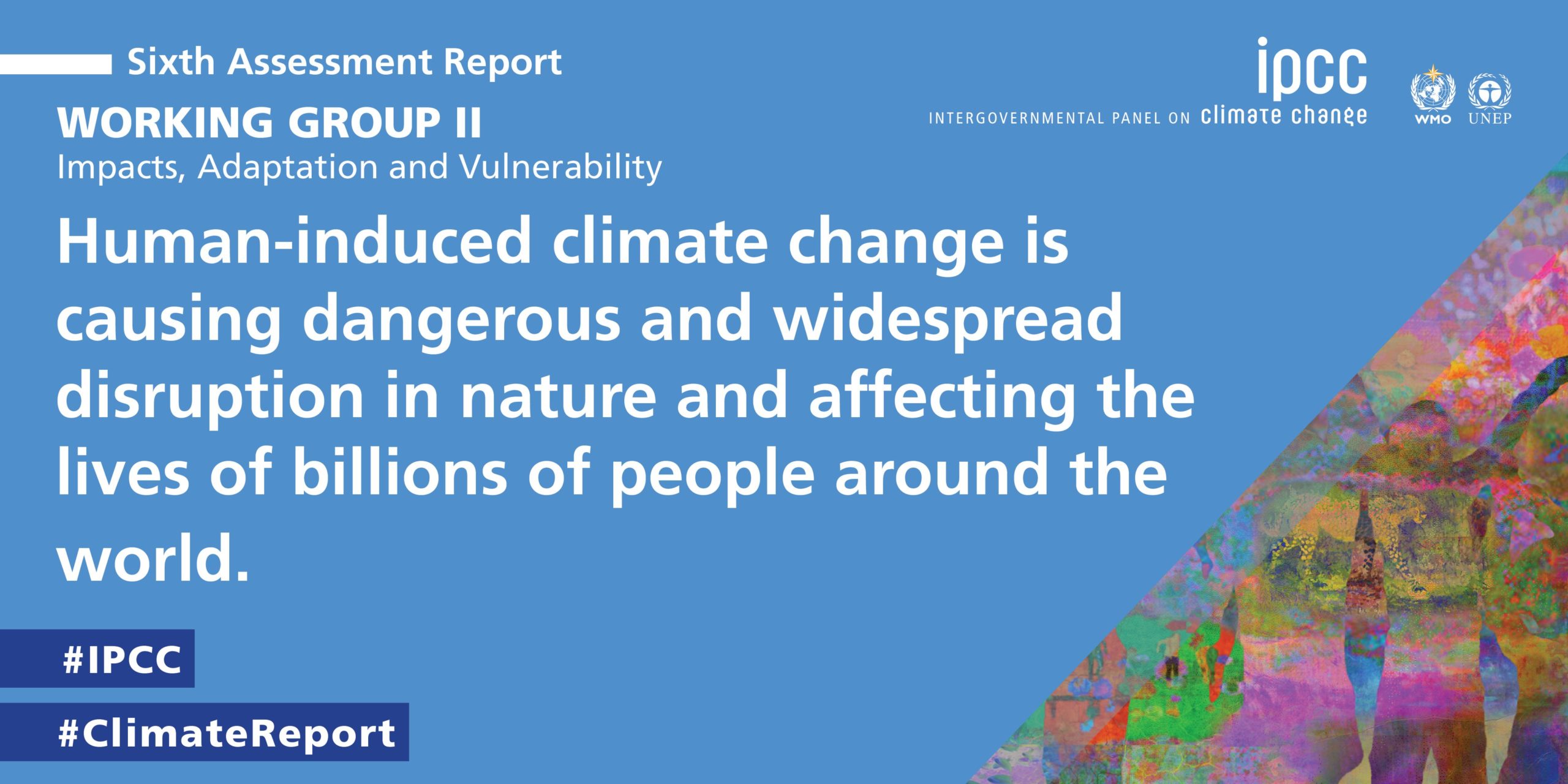
THE 6TH IPCCC REPORT’S IMPLICATIONS FOR CLIMATE ACTION
The second chapter of the sixth IPCC report deals with impacts, adaptation and vulnerability to climate change and is probably the most “social” one presented by the group. In this sense, the new publication completes the range of indications provided so far by the group on the characteristics and criticality of the phenomenon of climate change – in August 2021, in fact, the first chapter was presented, the one on the most up-to-date scientific evidence.
The document puts together in an organic way unequivocal evidence of how the inability of governments to rapidly reduce emissions is endangering the conditions necessary for life as we know it on the planet, perpetrating what can only be considered as continuous violations of international agreements on climate and human rights.
In the report, the IPCC provides detailed evidence of how climate change exacerbates the pre-existing conditions of vulnerability of entire societies, with greater impacts on discriminated groups (women, children, cultural, ethnic and religious minorities, people with disabilities, indigenous peoples, etc.). It is also recognized the weight of the legacy of colonialism that sees the populations of countries that have contributed the least to the emissions of altering gases suffer the most damage from the phenomenon and without the economic and technical resources to cope with it.
The impacts of climate change on society and people are not new, especially for that part of civil society that for decades has been bringing this evidence to the attention of policy makers at all levels and that has seen strong resistance to integrating into climate and environmental programs an intersectional approach that combines the scientific and technical aspects of climate change with the socio-economic ones.
The value of this IPCC report lies in the authoritativeness of the work of the group and in the social dimension of the work. Governments have in fact approved a document that can be used to exclude the residual grievances of those same policy makers who persist in not recognizing the role that human rights have in making climate action effective.
Integrating human rights principles into the climate-environment projects protects people and ecosystems that would otherwise risk being sacrificed once again in the name of reducing emissions, discarding “false solutions”. The hope is that this report represents a further “weapon” in the difficult struggle to adapt to climate change for which there is less and less time.
Chiara Soletti
Published online for Italian Climate Network on the website of the organisation.
